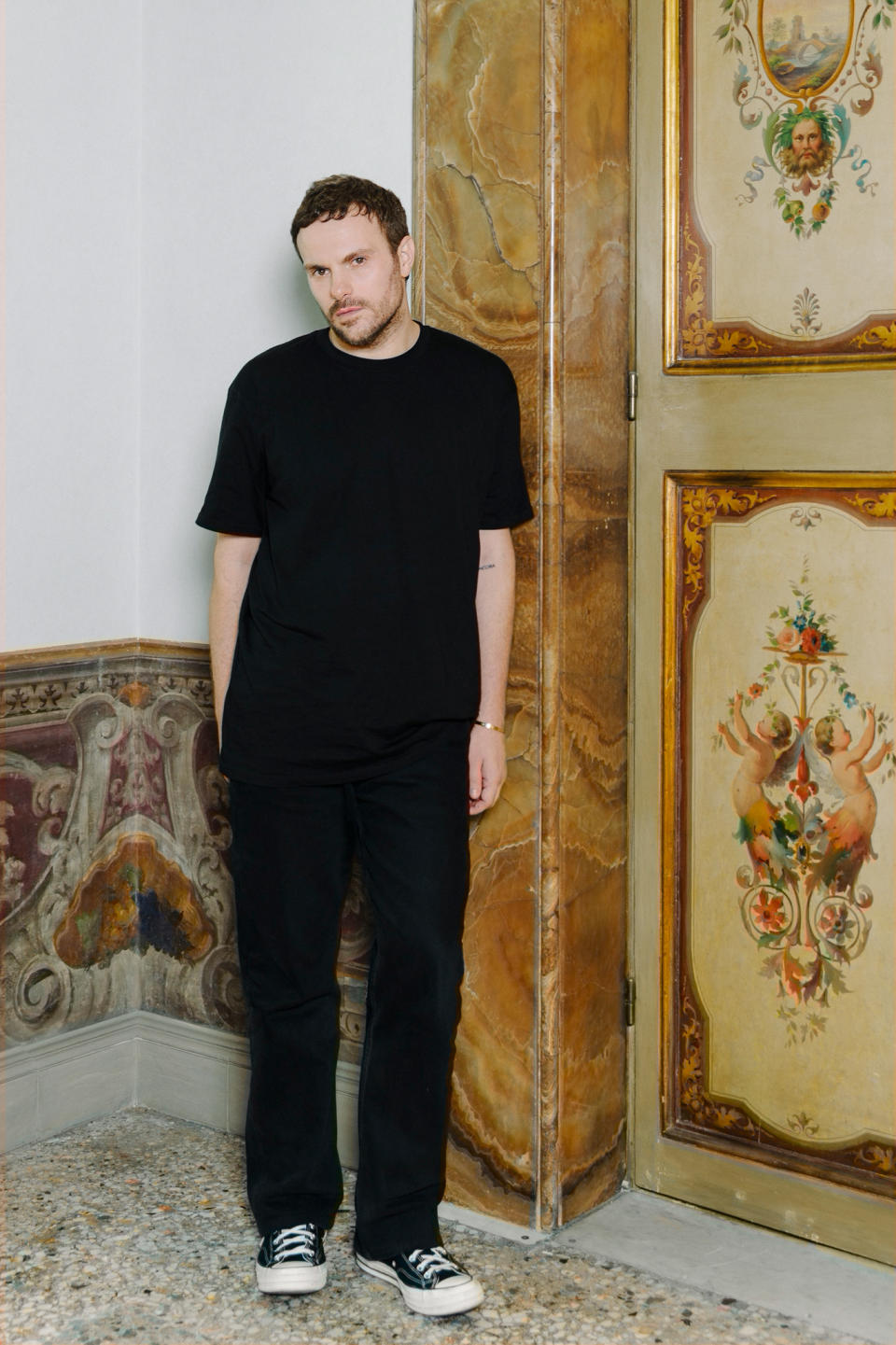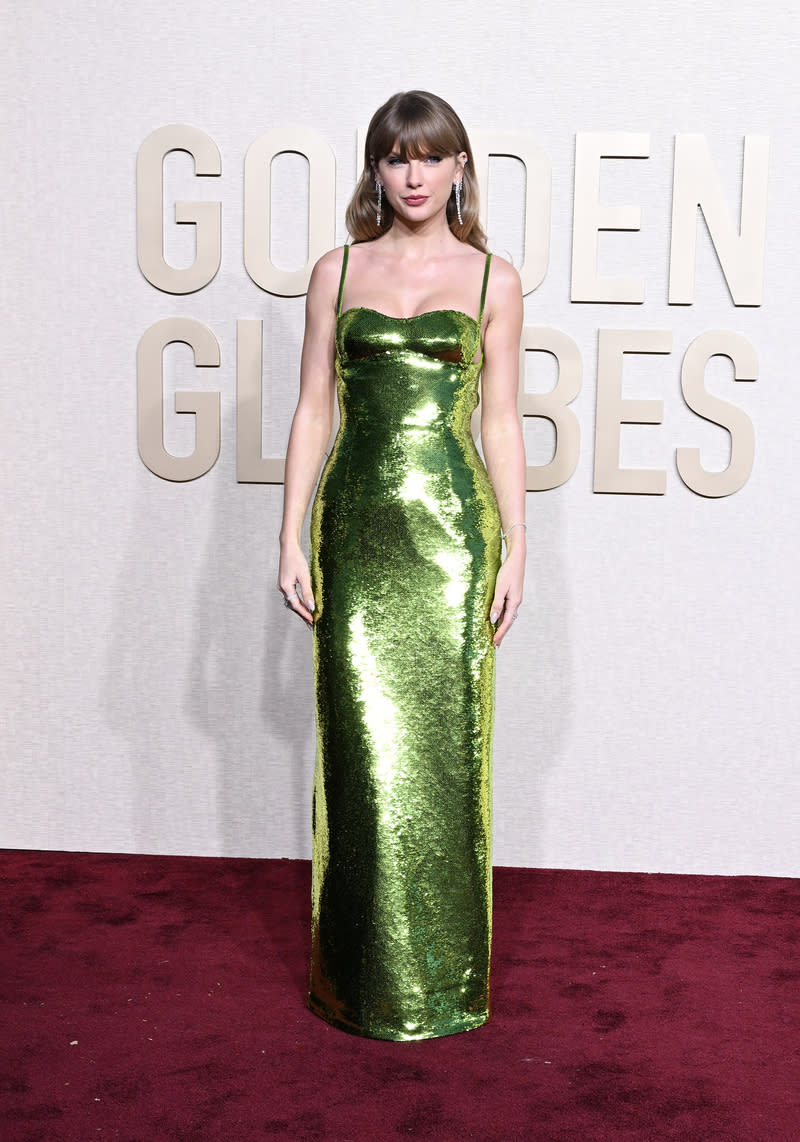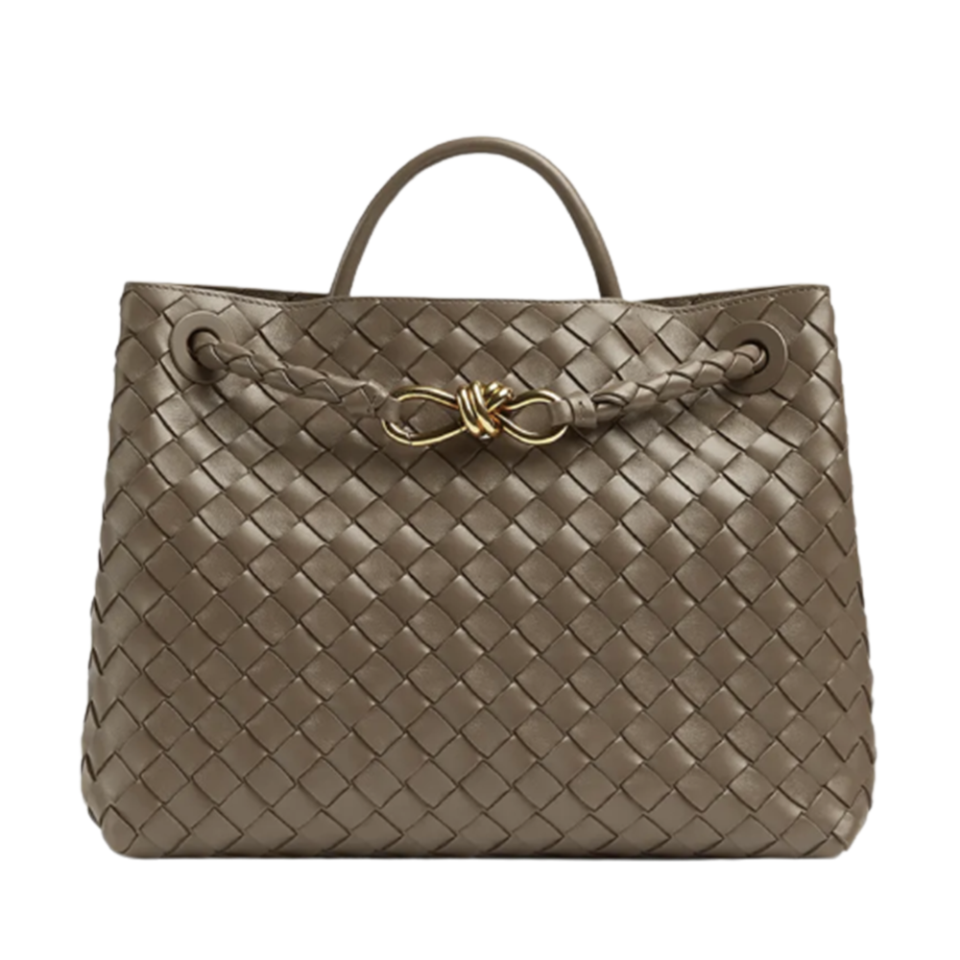Kering CEO François-Henri Pinault Details Brand Elevation Strategy

PARIS — Kering is bracing for another year of financial pain as it pursues its brand elevation strategy against a background of slowing luxury spending, in the hopes that investing in the desirability of its marquee brands will attract the top-tier clients it needs to catch up to its sector peers.
The French luxury group said Thursday that recurring operating profit fell 15 percent to 4.75 billion euros in 2023, and it expects another decline this year, particularly in the first half. Kering plans to ramp up spending on advertising and events to support the ongoing turnaround of its star brand Gucci and rev up the ailing Balenciaga and Alexander McQueen labels.
More from WWD
Kering Forecasts 40-45% Drop in H1 Operating Profit as Gucci Sales Tumble
Golden Goose Reports Q1 Sales Growth, Marco Bizzarri Joins Board
“In a market environment that remains uncertain in early 2024, our continuing investments in our houses will put pressure on our results in the short term,” Kering chairman and chief executive officer François-Henri Pinault said in a statement.
“Our number-one imperative is to further cultivate our brand exclusivity,” he elaborated on a call with analysts and reporters, after Kering reported that revenues in the three months to Dec. 31 fell 6 percent to 4.97 billion euros, representing a decline of 4 percent in comparable terms.
The figures beat a company-compiled consensus of analyst estimates, which had called for an 8 percent fall in reported sales to 4.88 billion euros, and came amid a wider luxury slowdown and geopolitical uncertainty.
While Kering continues to lag competitors, the results marked an improvement from the third quarter, when group revenue fell 13 percent at reported exchange rates and 9 percent on an underlying basis.
Organic sales at Gucci, which is undergoing a revamp under CEO Jean-François Palus and creative director Sabato De Sarno, fell 4 percent in the fourth quarter, on the lower end of market forecasts. The performance did not reflect sales of De Sarno’s debut collection, arriving in stores this month.

In a bid to limit uncertainty around the direction of the brand, Pinault said that Palus, one of his most trusted deputies, would remain in place at Gucci, instead of serving in a transitional capacity as initially announced.
“In less than six months, he has made gigantic headways in assessing where we stand and designing the roadmap for the next years,” Pinault said.
“The top priority was to put in place a strong executive team inside the brand and Jean-François has proven to be a great leader for that,” he added, pointing to the recent arrival of Massimo Vian as chief industrial and supply chain officer. More senior appointments are expected to follow soon.
Still, Kering executives warned that progress would likely be slow.
“Of course, none of this will happen overnight. The assessment stage is nearly complete and the implementation phase is on the way,” Pinault cautioned. “We are moving with determination to get to the inflection point.”
Jean-Marc Duplaix, deputy CEO in charge of operations and finance, said recurring operating profit at Gucci was expected to fall by at least midsingle-digits in 2024, following a 13 percent drop the previous year. Gucci accounted for 68 percent of Kering’s operating profit in 2023.
“Revenues should not increase significantly for next year at Gucci,” he said, noting that sales are expected to pick up in the second half and describing initial reactions to De Sarno’s collection as “very encouraging.” In recent weeks, the relatively little-known designer has dressed the likes of Taylor Swift at the Golden Globes and Miley Cyrus at the Grammys.

Most of Kering’s luxury divisions saw organic sales declines in the fourth quarter.
Saint Laurent was down 5 percent, dragged down by sales declines in North America and Western Europe; Bottega Veneta lost 4 percent, despite “encouraging signs” in Asia-Pacific, and the “other houses” group, which includes Balenciaga and Alexander McQueen, reported a 5 percent decline, impacted by a drop in wholesale revenues.
The Kering eyewear and corporate division bucked the trend with a 7 percent increase in comparable sales, following the integration of niche fragrance brand Creed. “Creed’s high level of profitability offset start-up costs at Kering Beauté,” the group reported.
By comparison, sector leader LVMH Moët Hennessy Louis Vuitton reported a 9 percent jump in organic sales in its key fashion and leather goods division in the fourth quarter.
At Kering group level, Duplaix described a soft start to 2024, weighed down by the later timing of Chinese New Year.
“The consumption trends in China and Asia-Pacific globally in January are a little more complex to navigate and clearly more uneven. When it comes to all the other regions, we don’t see significant changes compared to the fourth quarter of 2023, although 2024 started on a more muted trend,” he said.
In the fourth quarter, retail revenues in the Asia-Pacific region rose 8 percent in comparable terms, while growth in Japan moderated to 13 percent after several very strong quarters. Retail revenues were down 11 percent in North America and fell 8 percent in Western Europe, though this represented an improvement compared with the prior three months.

Though it was a transitional year for Kering, due to the ongoing impact of a public relations crisis at Balenciaga and the replacement of longtime creative director Sarah Burton at McQueen, the group invested in production capacities and flagships, including the world’s biggest Saint Laurent store on the Avenue des Champs-Elysées in Paris.
Capital expenditures rose 15 percent to 1.2 billion euros, and Kering spent an additional 1.4 billion euros on acquiring three buildings in prime locations in the French capital, including a building on Rue de Castiglione that will house a Gucci flagship set to open in early 2026, and another location for Saint Laurent on Avenue Montaigne.
In addition, it revealed last month that it had paid $963 million for a prime location on Fifth Avenue in New York City.
However, Duplaix noted that directly owned boutiques represented only a handful of the company’s global network of roughly 1,800 stores, and suggested that Kering could link forces with external partners to finance such acquisitions, as it did in 2019 with its Japanese headquarters in Tokyo’s Omotesando district.
The executive said the group plans to increase spending on communications by a double-digit percentage in 2024, while advertising and promotion costs as a percentage of sales would be “significantly” above 8 percent.

Francesca Bellettini, deputy CEO in charge of brand development at Kering and CEO of Saint Laurent, said that while the group remained cautious for 2024, it is starting to see results from its brand elevation strategy. For instance, Bottega Veneta had a strong fourth quarter in the U.S., gaining market share, she reported.
“Of course, the aspirational client is the most prominent part of our client base. But what we have been focused on, particularly in the last few years, building on the desirability of the brands and the elevation strategy, is to increase the number, the value and the share of our top customers,” she said.
“Our goal for the future is to continue to grow both, with the aspirational part growing less than the top, and the top growing very fast. The results of 2023 in this respect are very promising,” Bellettini added.
Pinault noted that Boucheron enjoyed another year of double-digit growth in 2023 and would be entering the U.S. market this year. “This clearly illustrates the dynamics of the segments that are focused on timeless luxury, rather than the creative luxury that we have developed massively in our houses,” he said.
At the same time, Kering plans to provide more entry-price products for its brands, with the planned launch of a high-end fragrance range at Bottega Veneta this year, to be followed by Balenciaga and McQueen perfumes in 2025.
Pinault said that attracting high-net-worth individuals requires offering more exclusive products in equally prestigious settings. While this might be costly in the short term, the alternative would mean permanently lagging behind companies like Hermès, which has found a seemingly crisis-proof niche in the top-tier segment.
“I think it would be very damaging to have a stop-and-go policy and say, ‘OK, it’s hard, we’re taking a break and we’ll start again when things get better,’” he said. “We’re sufficiently healthy financially to be able to absorb this pressure on results in the short term in order to secure the future of our houses.”
Best of WWD

 Yahoo Finance
Yahoo Finance 